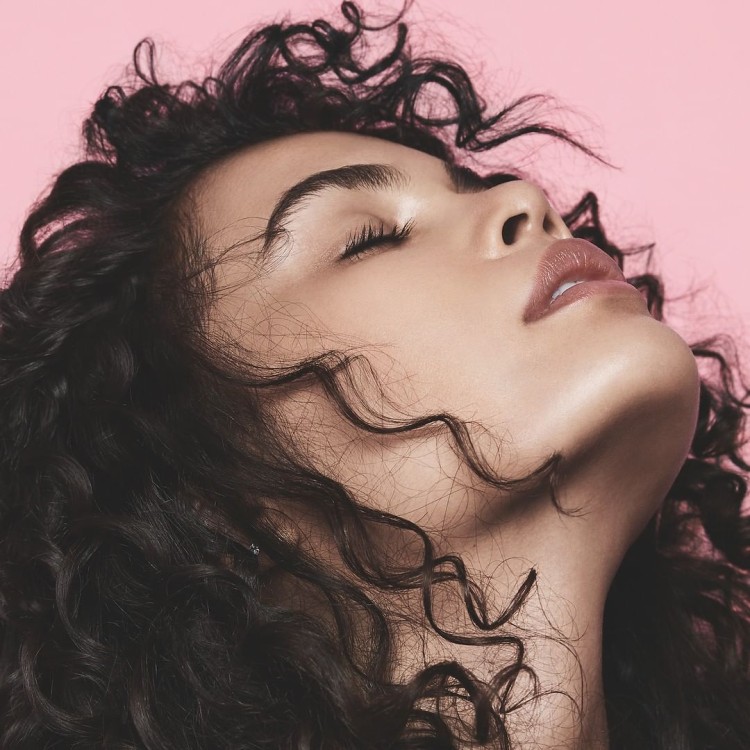There are plenty of reasons why your hair might be shedding. It’s Important to find which cause is affecting you (and maybe more than one)… and try not to freak out!
1/ A shift in seasons
Your hair works in three different stages. A growth phase, a transitional phase, and a resting phase. The growth phase lasts between 3-6 months whereas the transitional (aka catagen) is only a few weeks long and the resting (aka telogen) is another three months. The latter phase takes place heading from summer to autumn and as it’s resting, it sheds more. So those extra strands in your hairbrush or dancing around the shower plug are totally normal. Phew. You’ll begin to notice this pattern more by taking note of seasonal changes. Each shift pushes our hair into this resting (telogen) phase. Think of our fur babies and how they malt…
2/ Stress
Stress is sure to strike us at some point for whatever reason. If you notice clumps rather than strands shedding, it’s likely less than a shift in seasons and more of a bout of stress or even something more serious. But don’t let this stress you more… it’s a vicious circle we want to avoid! Big events in life can cause extra stress and our bodies go into survival mode, channeling their resources to where they are most needed. Stress can put a hold on hair regeneration so there is less to replace the lost strands. Even a quick and drastic weight loss can affect hair phases leaving small bald patches as the body struggles to keep up with the ‘trauma’ although all causes in this category are hopefully temporary.
3/ Nutrition
Nutrition is another key player in hair loss. As with all parts of a functioning body, the hair also relies on good solid nutrition to keep hair healthy. For thickness and shine, the most beneficial nutrients your hair requires are iron, zinc, vitamin B3 (niacin), and protein so pay attention to what you’re putting in! It’s fascinating that so much really does come down to gut health. The good on the inside glows on the outside.
4/ Medications
It can be that a certain type of medication can aid hair loss. We’re all well versed in how cancer treatments can affect our head of hair just as others can. Work it through with your doctor to ensure you’re on the best medication for you where possible.
5/ Autoimmune diseases
Autoimmune disease happens when the body’s natural defence system can’t tell the difference between your own cells and foreign cells, causing the body to mistakenly attack normal cells. There are more than 80 types of autoimmune diseases that affect a wide range of body parts. When it comes to your hair, the body recognises its own hair follicles as foreign and it attacks them and makes the hair fall out as a result. This is the hair condition called alopecia where all of the hair may fall out. Sometimes it does grow again although the cycle can repeat itself.
Conditions that also affect other parts of the body such as arthritis (and its treatment), can have symptoms of hair loss. If the hair follicles are scarred badly enough, hair loss may be permanent.
6/ Genetics
It’s not just the guys that have to look at the male heritage! Both genders are vulnerable to following in their hereditary footsteps. It’s usually an easy fix with a treatment to slow the process… but the sooner you start, the better so be sure to take a look at that head of hair on your parents next time they bend down!!
7/ Hormones
These, as we know and don’t so much love, can be affected more greatly in the females the taking birth control or following a pregnancy. Ads if we don’t have enough to deal with?! The actual pregnancy stage can give a bountiful supply of thickening hair as the growth stage goes into overdrive and the normal shedding is slowed down a notch. This is because our hormone oestrogen goes into overdrive wanting the best of growth for your body in many aspects. Hair is one of them and a stage of pregnancy we cherish and want to hold onto. But as these oestrogen levels return to normal, so do our hair phases which means those luscious locks we so fondly grew, begin to shed. Postpartum hairlessness can happen more rapidly for some than others and although it can be alarming at first, like most things after pregnancy, they return to a normal rate with time! Sleep included!!
So just like our natural hormone changes, the use of birth control can affect these phases. Keep up with the volumising hair products and clever styling to get through these temporary changes.
8/ Styling..
While we are on this topic, let’s pay attention to not being too harsh in the process! Tight styles like a slapped-back high pony can thin the hairline and even damage the follicles. And if that scarring damage comes into play… alopecia can be a very much unwanted result so make sure you loosen up and mix it up!
Similarly, if you over-process your strands too much, the trauma will run deep! Don’t over wash and rid the healthy oils, use a good conditioner in moderation, use products to protect from heat damage of styling tools, and treat to a mask every now and then. Your hair is no different from any other part of your body when you need some TLC!

